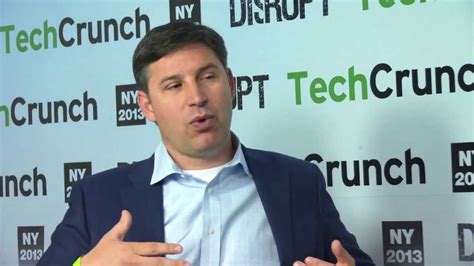A Quote by Soren Skou
By using big data, it will also be possible to predict adverse weather conditions, rerouting ships to avoid delays, and monitor fuel data, thereby allowing companies to optimize their supply chains and the way they drive their business.
Related Quotes
Let's look at lending, where they're using big data for the credit side. And it's just credit data enhanced, by the way, which we do, too. It's nothing mystical. But they're very good at reducing the pain points. They can underwrite it quicker using - I'm just going to call it big data, for lack of a better term: "Why does it take two weeks? Why can't you do it in 15 minutes?"
We get more data about people than any other data company gets about people, about anything - and it's not even close. We're looking at what you know, what you don't know, how you learn best. The big difference between us and other big data companies is that we're not ever marketing your data to a third party for any reason.
One of the myths about the Internet of Things is that companies have all the data they need, but their real challenge is making sense of it. In reality, the cost of collecting some kinds of data remains too high, the quality of the data isn't always good enough, and it remains difficult to integrate multiple data sources.
The big thing that's happened is, in the time since the Affordable Care Act has been going on, our medical science has been advancing. We have now genomic data. We have the power of big data about what your living patterns are, what's happening in your body. Even your smartphone can collect data about your walking or your pulse or other things that could be incredibly meaningful in being able to predict whether you have disease coming in the future and help avert those problems.


































